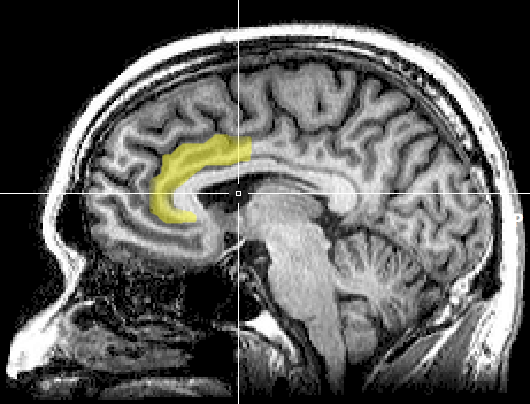 Self affirmation theory, first proposed by Claude Steele in 1988, suggests that when a new belief threatens our point of view, we protect our integrity by reminding ourselves who we are. Under this model, self-affirmation helps us tame confirmation bias, which often causes us to be blind to ideas that threaten our existing world view.
Self affirmation theory, first proposed by Claude Steele in 1988, suggests that when a new belief threatens our point of view, we protect our integrity by reminding ourselves who we are. Under this model, self-affirmation helps us tame confirmation bias, which often causes us to be blind to ideas that threaten our existing world view.
By falling back on this sense of integrity, we allow ourselves to be more open to new ideas without feeling as though we are jeopardizing who we are.
The model may sound a bit ?touchy-feely,? but many psychological studies have demonstrated how self-affirmation can help improve our performance on various tasks in experimental studies. Unfortunately, very little of this research has focused on what is actually happening in the brain, until now.
The experiment was led by Lisa Legault of Clarkson University with researchers from the University of Toronto Scarborough?and?Johns Hopkins University.
Because self-affirmation allows us to be more open to threatening ideas, they set out to discover whether this meant we would be more open to our own errors, and if this had something to do with the better performance seen in previous studies.
They also wanted to find out if this effect could be measured in the brain itself through a?phenomenon?called ?error related negativity.? This brain wave, more concisely called an ERN, is a well known electrical activity spike that happens in your brain after you make an error. Remarkably, these spikes occur even if you aren?t consciously aware of an error, although the spikes are smaller in this case.

The anterior cingulate cortex is highlighted
Previous MRI experiments suggest that ERN probably starts in a part of your brain called the anterior cingulate cortex, located between your forehead and the center of your brain.?This part of the brain is vital for all kinds of functions, including regulating blood pressure and heartbeat, as well as more ?human? things like empathy, decision making, emotion, and reward.
To test the theory, 38 undergrads were asked to rate 6 values according to their importance. Half were asked to write why their highest ranked value was important to them, a form of self-affirmation. The other half were asked to write why their highest ranked value wasn?t that important to them, which would reduce their sense of self-affirmation.
Afterward, the participants were hooked up to an EEG while they played a simple computer game. The game would push the ?go? button when they saw the letter M, and not push the button when they saw the letter W. To reinforce the effect, if they failed to push the button, or missed their chance, they saw the word ?Wrong!? on the screen.
As previous experiments would suggest, the ones who went through the self-affirmation task did better at the game.
More interestingly, they experienced larger ERN spikes when they made an error. After controlling for everything else, they verified that this larger ERN spike was the most likely cause of improved performance.
In other words, feeling self-affirmed actually means you are more aware of the errors you have made, more receptive to them, and more willing to change your approach in order to correct the errors.
Related:
Authentic Happiness: Using the New Positive?Psychology?to Realize Your Potential for Lasting Fulfillment
Source: http://trendingsideways.com/index.php/improving-self-control-brain-study-on-how-affirmation-works/
jenelle evans mlb 12 the show sabu google play franchise tag lesotho a wrinkle in time

কোন মন্তব্য নেই:
একটি মন্তব্য পোস্ট করুন